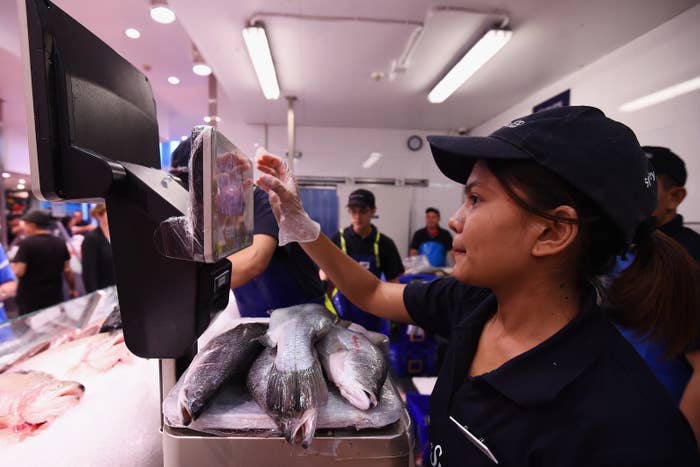Retail is the largest employer of Australian women aged under 25.

Sunday penalty rates will be reduced for workers in retail (and hospitality, fast food and pharmacy) industries following a decision by the Fair Work Commission today.
The retail industry employs more than 600,000 Australian women, making it the second largest employer of females in the country.
Over a quarter (26.7%) of all employed women under 25 work in retail, according to the latest figures from the National Retail Association.
Ashleigh, a former manager at Just Group (Dotti, Just Jeans, Peter Alexander) and BBRC (Lovisa, Bras N Things, Honey Birdette) told BuzzFeed News she did "not agree with penalty rate cuts at all".
"Sunday penalty rates have a huge impact on people's salaries," she said.
Although Ashleigh did not receive penalty rates, as her salary was above award rate to compensate for working Sundays, she managed rostering for a mostly female team. She said Sunday shifts were most popular with uni students, "particularly those financially supporting themselves".
"For those that are financially independent, penalty rates are the reason they make rent," she said.
"People who work in retail are some of the hardest working, yet they are poorly compensated and it is ridiculous that [they] are expected to earn less money so extremely rich retail owners can continue their unsustainable profits."
More than half (54.6%) of Australia's retail workforce is female.
Retail is the 2nd largest employer of women nationally & the largest employer of women aged under twenty-five #penaltyrates
Of 19 major industries in Australia, only five had a workforce with more women than men, the Workplace Gender Equality Agency found.
Two of those, retail trade and accommodation and food services, will be impacted by the impending penalty rate cuts.
Retail also employed the second highest number of single mothers of any sector in Australia, with analysis suggesting that 16.4% of mothers working in retail were single parents.
